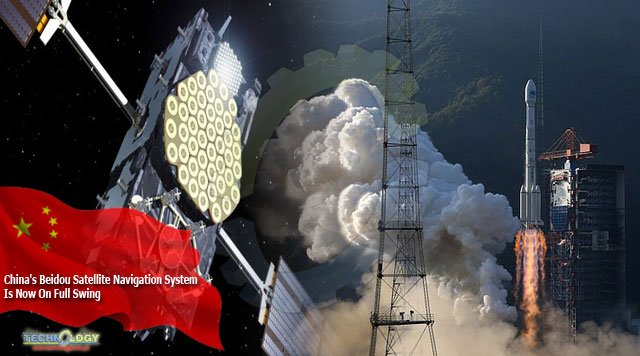China’s Beidou Satellite Navigation System has been completed and started providing full-scale global services on the day.

Beidou Satellite Navigation, Xi, who is also general secretary of the Communist Party of China Central Committee and chairman of the Central Military Commission, declared the completion of the global navigation and positioning system’s third-generation network at a ceremony at the Great Hall of the People in Beijing.
This is a new milestone in China’s space industry and also a major achievement in the country’s efforts to boost science, technology and innovation, experts have said.
Beidou is the country’s largest space-based system and one of four global navigation networks, along with the United States’ GPS, Russia’s GLONASS and the European Union’s Galileo.
More than 300,000 scientists, engineers and technicians from over 400 domestic institutes, universities and enterprises have been involved in Beidou’s development and construction. Dozens of distinguished scientists from the Chinese Academy of Sciences and the Chinese Academy of Engineering have taken part in the programme, project leaders said.
In late June, the final satellite to complete Beidou’s third-generation network was lifted by a Long March 3B carrier rocket at the Xichang Satellite Launch Center in Sichuan province and was placed into a geostationary orbit about 36,000km above the Earth.
After in-orbit tests over the past month, the satellite, the 59th in the Beidou family and 30th in the third-generation series, has recently started its formal operations, according to the China Satellite Navigation Office.
Since 2000, a total of 59 Beidou satellites, including the first four experimental ones, have been launched from Xichang on 44 Long March 3-series rockets, with some of them having retired.
Beidou began providing positioning, navigation, timing and messaging services to civilian users in China and other parts of the Asia-Pacific in December 2012. At the end of 2018, it started offering basic global services.
Now, there are 30 third-generation Beidou satellites in three types of orbit 24 in medium-Earth orbits, three in inclined geosynchronous satellite orbits and three in geostationary orbits.
There also are some second-generation Beidou satellites in operation offering regional services, said the China Satellite Navigation Office. – China Daily/Asia News Network
This news was originally published at thestar.com.my